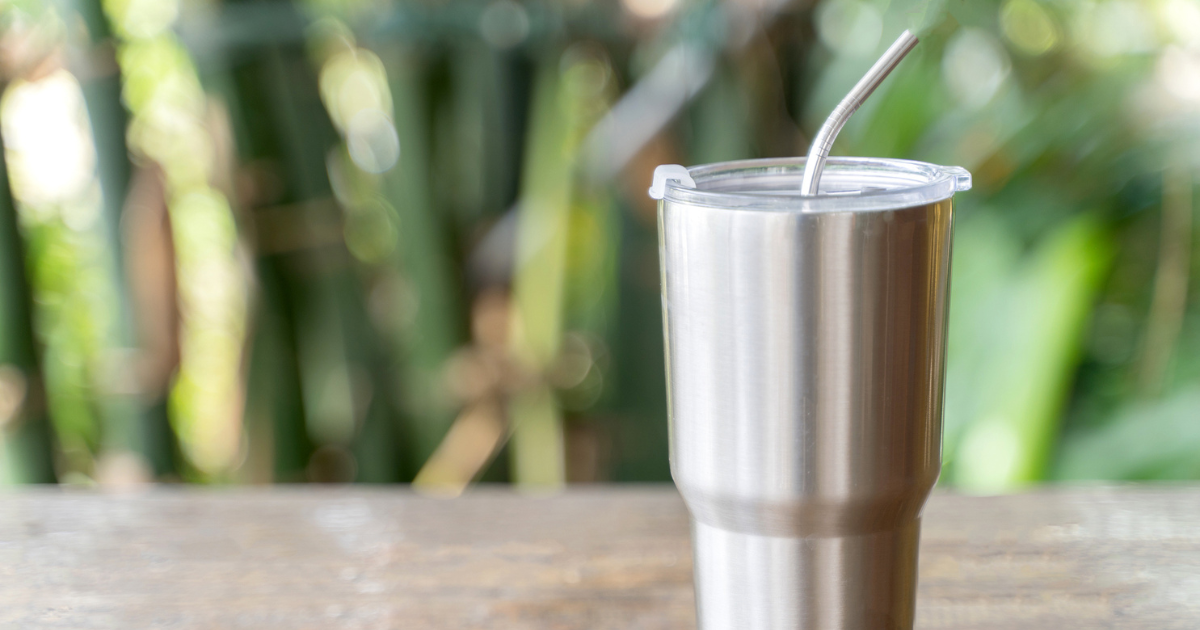What to know about Stanley® travel mugs and lead poisoning

Just a short time ago, Stanley® travel mugs were all the rage. But their popularity quickly waned when they came under public scrutiny earlier this year for using lead in the vacuum-sealing process.
While using lead to vacuum seal insulated water bottles is no longer an industry standard, the Food and Drug Administration still considers the practice safe.
Nebraska Medicine emergency medicine physician and associate medical director of the Nebraska Regional Poison Control Center Joseph Clemons, MD, says consumers do not need to discard their Stanley water bottles and should feel safe drinking from them.
“All the media attention on this is probably overblown and should not cause alarm or over-concern,” Dr. Clemons says. “The lead is sealed underneath a stainless-steel layer preventing it from leaking into the contents of the mug unless the water bottle has been severely damaged – like run over by a truck.”
In an online statement, Stanley states, “Our manufacturing process currently employs the use of an industry-standard pellet to seal the vacuum insulation at the base of our products; the sealing material includes some lead. Once sealed, this area is covered with a durable stainless-steel layer.”
While Stanley mugs should be considered safe to use, the concern about the health risks associated with lead exposure is legitimate, notes Dr. Clemons. The Centers for Disease Control and Prevention states there is no healthy exposure to lead, especially for children.
Lead exposure can occur when you swallow or breathe lead in.
“A large-dose exposure to lead, as well as a low-dose exposure over a period of time, can cause health issues,” says Dr. Clemons.
Children are even more vulnerable to exposure to lead than adults for several reasons, explains Dr. Clemons. These include: They are exposed more often because of frequent hand-mouth behavior; they absorb lead more easily from the gastrointestinal tract; and their blood-brain barrier and liver detoxification systems are not as developed. Children under 6 years of age are especially vulnerable.
Lead exposure in children can lead to:
- Neurodevelopmental issues
- Cognitive problems
- Learning and behavioral issues
- Seizures
- Decrease in IQ
- In severe cases, death
In adults, mild lead toxicity can cause:
- Fatigue
- Mild cognitive issues
- Chronic hypertension
- Cardiovascular problems
Moderate exposure to lead in adults can cause:
- Headaches
- Memory loss
- Peripheral neuropathy
- Abdominal pain
- Decreased libido
- Muscle weakness
- Anemia
Large exposure to lead in adults can cause:
- Seizures
- Delirium
- Optic neuritis
- Cranial pressure
- Kidney damage
If you think you have been exposed to lead, Dr. Clemons recommends making an appointment with your primary care doctor. For immediate advice, call the Poison Control Center at 800.222.1222.
Other water bottle companies, such as Hydro Flask® and Owala® made statements shortly after the Stanley lead news began flooding social media. Both have stated that they do not use lead during the sealing process. YETI® uses a vacuum sealing bead similar to Stanley that contains some lead, which it uses in its sealing process. However, YETI says that it is completely encapsulated and inaccessible. YETI also claims the lead content in its cups is considered safe for everyday use.
“While the goal is to have a lead-free environment, that is just not reality,” says Dr. Clemons. “Lead is a naturally occurring element found in small amounts in the air, soil and water.”
According to the U.S. Environmental Protection Agency, lead has been used in various products over the years, including paint, ceramics, pipes and plumbing materials, solder, gasoline, batteries, ammunition and cosmetics. However, federal and state regulatory standards have helped decrease the amount of lead in air, drinking water, food, soil, consumer products and occupational settings.
“The bottom line – while no exposure to lead is best, most toxicities are due to repeated exposure to lead over a long period,” Dr. Clemons says. “A single small exposure most likely won’t result in a life-or-death situation.”
Call 800.922.0000 to schedule an appointment with a primary care doctor. For more immediate advice, call the Poison Control Center at 800.222.1222.




